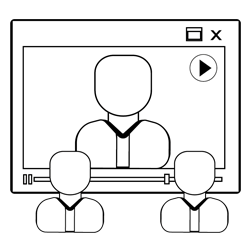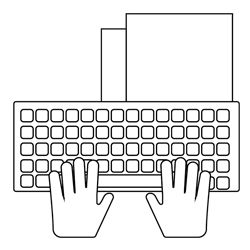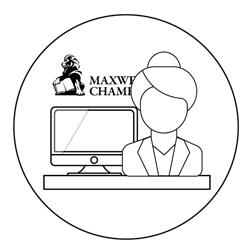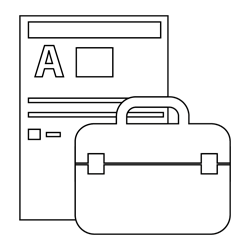Interviews

#10QuestionswithMaxwell Interview Series: Jaya Prakash
This week’s #10QuestionsWithMaxwell features Jaya Prakash, an independent arbitrator and mediator. Before he became a full time arbitrator and mediator in 2018, he was admitted as an Advocate and Solicitor of the Supreme Court of Singapore. He was made a Fellow of the Singapore Institute of Arbitrators in 2000 and a Fellow of the Chartered Institute of Arbitrators in 2000.
In recent years, Jaya has been sought as an arbitrator in commercial, transnational and maritime disputes. He is familiar with Singapore, English and Malaysian laws and has particular expertise in commercial and maritime law.
He is on the Advisory Board for the Centre for Maritime Law in the National University of Singapore and also a supporting member of The London Maritime Arbitrators Association and DIFC-LCIA Arbitration Centre.
In this interview, Jaya shared one thing he would change about the arbitral system, advice to lawyers looking for their first arbitration appointment, his favourite past-time, and more.
Read his full interview below:
Q: What has been your most memorable experience as an arbitrator and mediator?
A: I do not think I could single out any particular experience as being most memorable. Each case of arbitration or mediation which I have participated in has had its own particular and special features. It is fair to say that memories are etched and satisfaction derived when – in a mediation, a settlement has been achieved by the parties and they end up shaking hands with one another and in an arbitration, I am able to write a well-reasoned award after consideration of complete submissions.
Q: Which do you enjoy practising more – arbitration or mediation?
A: Arbitration and mediation require different skill sets. In one sense, mediation is more demanding as it is normally conducted within a day or two, and is very intense with parties putting their best cases forward within a tight timeline. Whilst I enjoy mediating disputes as they provide an opportunity to throw out and explore settlement options and solutions, I guess I am marginally more partial towards arbitration as I enjoy delving into and writing awards on legal issues relating to commercial disputes.
Q: You are highly sought as an arbitrator in commercial, transnational and maritime disputes. Could you share with us one key trend you see in the upcoming 3-5 years?
A: One key trend that I see is the direct impact on travel restrictions caused by the COVID-19 pandemic. Parties are already getting accustomed to effectively present cases, even witness evidence, across countries and time-zones via the virtual platform. This trend will continue and we will probably see less travel to attend arbitration proceedings. That said, there is value in the physical hearing – in particular, observing a witness giving evidence in-person, as well as the interaction with Counsel on submissions being made.
Q: Virtual and hybrid hearings are becoming the new norm. How has that affected hearings proceedings, in your opinion?
A: I agree that virtual and hybrid hearings are getting to be the more usual ways in which arbitration matters are dealt with. Neither of these forms replaces the effectiveness of a normal physical hearing. Having said that, hearings can be fairly effectively dealt with by way of virtual and hybrid hearings with good IT support, particularly in the way documents are catalogued and presented online for easy reference.
Q: What qualities do you think make for an effective arbitrator in today’s climate?
A: An effective arbitrator, apart from being current on the law in which he/she is said to be a specialist, must be fiercely independent and impartial. He/she must also have plenty of patience, particularly when having to receive evidence from persons whose ordinary spoken language is not English. Oftentimes, when given time to explain, such witnesses expound perfect sense.
Q: How do you think the role of an arbitrator will evolve in the next five years?
A: We now appear to have an increasing number of arbitration awards being brought to Court on applications for setting them aside. As Courts and arbitral institutes help evolve arbitration law and practice, arbitrators will have to be wary of potential procedural pitfalls whilst keeping abreast with increasingly complex commercial structures disputes on which are referred to arbitration.
Q: If you could change one thing about the arbitral system, what would it be?
A: In Singapore, I would like for there to be a limited right of appeal to the Courts in much the same way as exists in the United Kingdom. This would allow litigants the satisfaction that in the appropriate case, there is recourse to the judges to determine matters arising from what would usually be difficult legal issues.
Q: What advice would you give to lawyers looking for their first arbitration appointment?
A: I know that it is difficult to get the first arbitration appointment. Persevere! Try to connect with the lawyers and the arbitration community by participating in talks, webinars and such like to make known your presence and your special skills. Soon, the first appointment will come and with it, subsequent appointments will follow.
Q: What is your favourite past-time? How do you spend your weekend?
A: I spend my leisure hours reading (mainly non-fiction), taking photographs (nowadays mainly in Singapore on account of COVID-19), cooking (making different types of jam has become a favourite past-time) and spending time with my family, particularly in interacting with my grandson.
Jaya spending his leisure time doing photography
Q: Lastly, share with us your fondest memories of Maxwell Chambers or Maxwell Chambers Suites.
A: Maxwell Chambers Suites allows for close interaction with fellow arbitrators who are good friends from a long time ago. The community spirit is strong and this will (I am sure), grow with increased activities once the COVID-19 restrictions are lifted.










